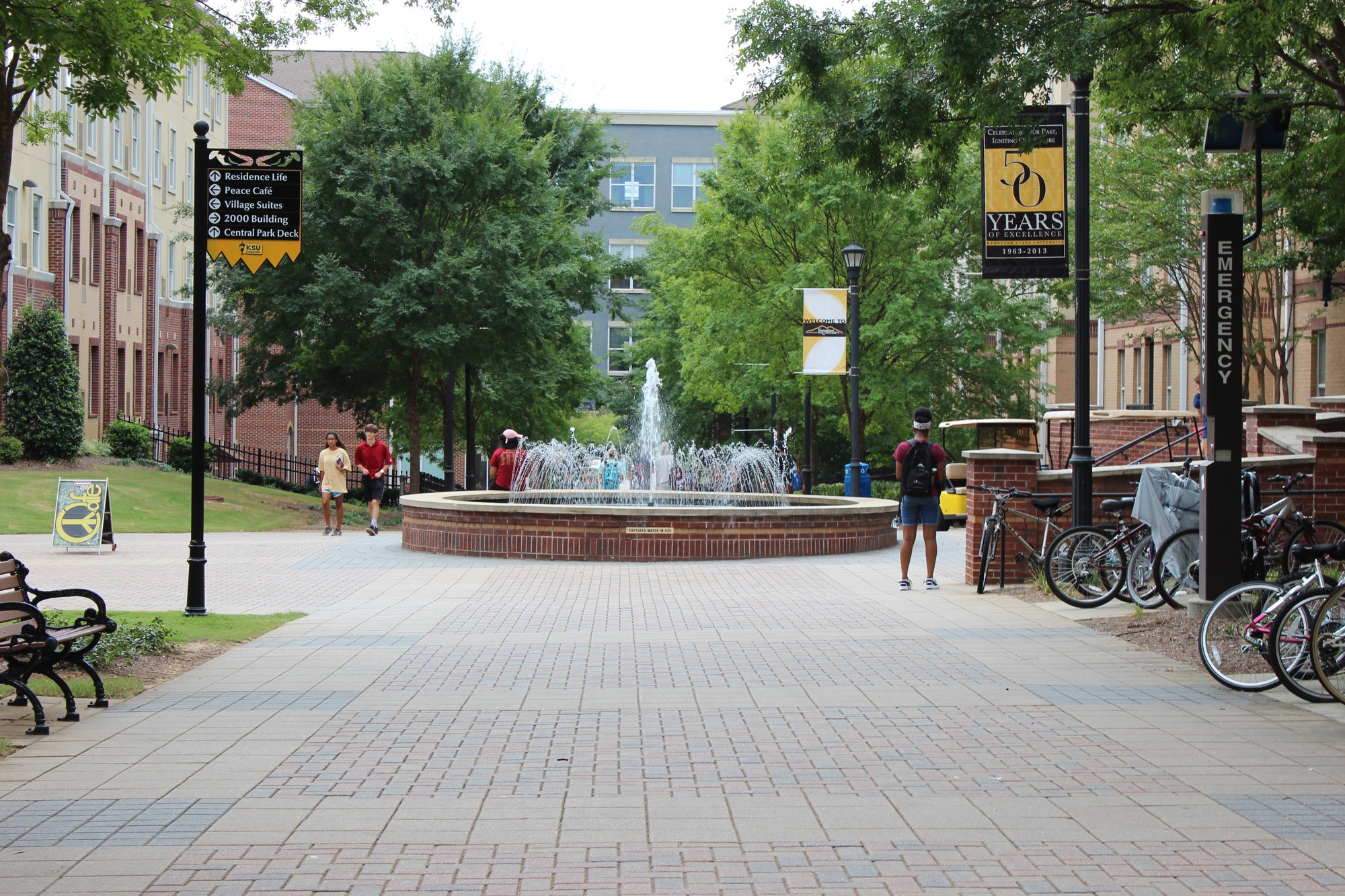TikTok, the viral video-sharing app, has been banned from government-owned devices and some Wi-Fi networks in 25 states and many college campuses from rising data breach concerns since ByteDance, the company that owns TikTok, is based in China.
This ban includes all Georgia public colleges included in the University System of Georgia under Brian Kemp’s lead. Many argue government devices should only be used for intended purposes regardless, but opposing arguments have come from college students.
With many students being influencers and relying on social media platforms for their income, some argue it intrudes on their rights. TikTok is still accessible using personal cellular data, but that could cause complications for many influencers.
Another frequent concern is how TikTok acts as the main news source and search engine for a large number of young people. It is estimated that around 40% of people aged 18 through 24 rely on TikTok or Instagram rather than other resources.
Teachers have voiced complaints stating that taking away the most popular resource among college students impedes their education. Students can no longer source content from TikTok to share with the classroom and vice versa, teachers can no longer share educational content with their students on the platform they are most likely to use.
Colleges often use TikTok to promote the school including the college itself, on-campus clubs and organizations. Around 20 of the Georgia colleges have at least one TikTok account with Valdosta State University appearing to have eight.
Concerns surrounding the app derive from the fact that China can collect private data through the platform. The Chinese government could access location and browsing data, and with a growing concern about privacy with technological advances, the public is worried.
In 2020, President Donald Trump attempted to settle the situation by requesting ByteDance to sell TikTok to an American-based company or he would ban the app in the United States. There was talk of ByteDance selling to Oracle, but no deal took place and the ban was never put in place.
Concerns remained rampant in 2022 and the Biden administration continued working towards settling these concerns. In June of 2022, TikTok did take action and moved all US traffic to Oracle servers, meaning Chinese employees can no longer access the data.
Despite this situation being rectified, extreme concern still remains. This has led to the banning of TikTok from government-owned devices and networks. Annoyance has been voiced by TikTok disliking the political agenda against the app in the United States.
“We’re disappointed that so many states are jumping on the bandwagon to enact policies based on unfounded, politically charged falsehoods about TikTok,” Brooke Oberwette, TikTok’s Head of Policy Communications in America said to The Hill.
Kennesaw State has yet to place a ban on the app through Wi-Fi networks and it is unknown if they have enacted the policy banning it from state-owned devices. No information on whether the university will push the ban onto the Wi-Fi networks or staff-owned devices has been released.


